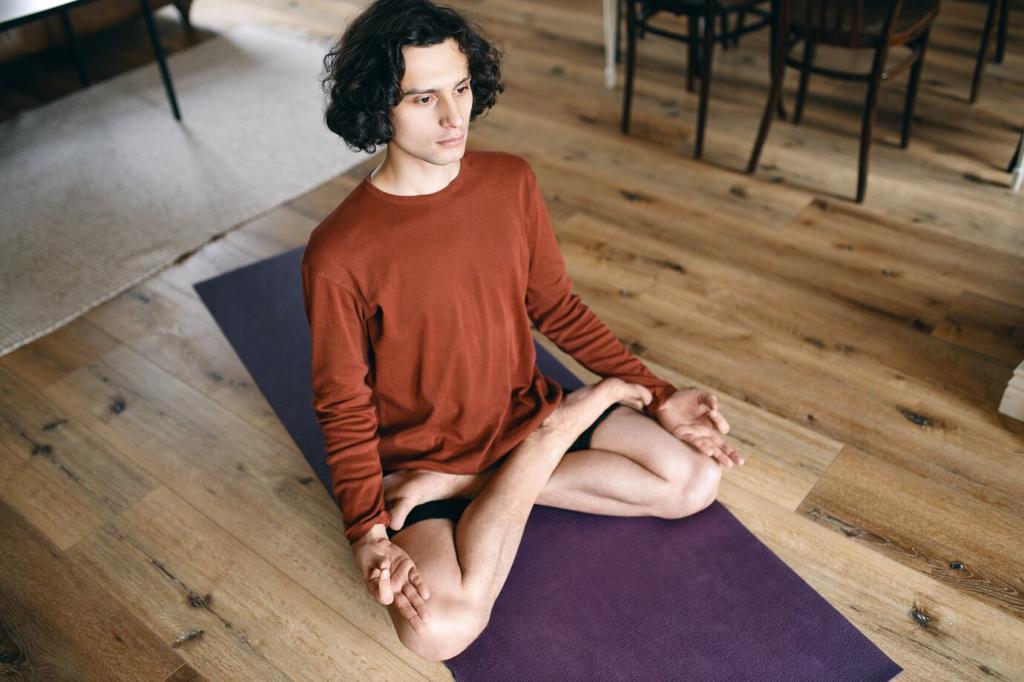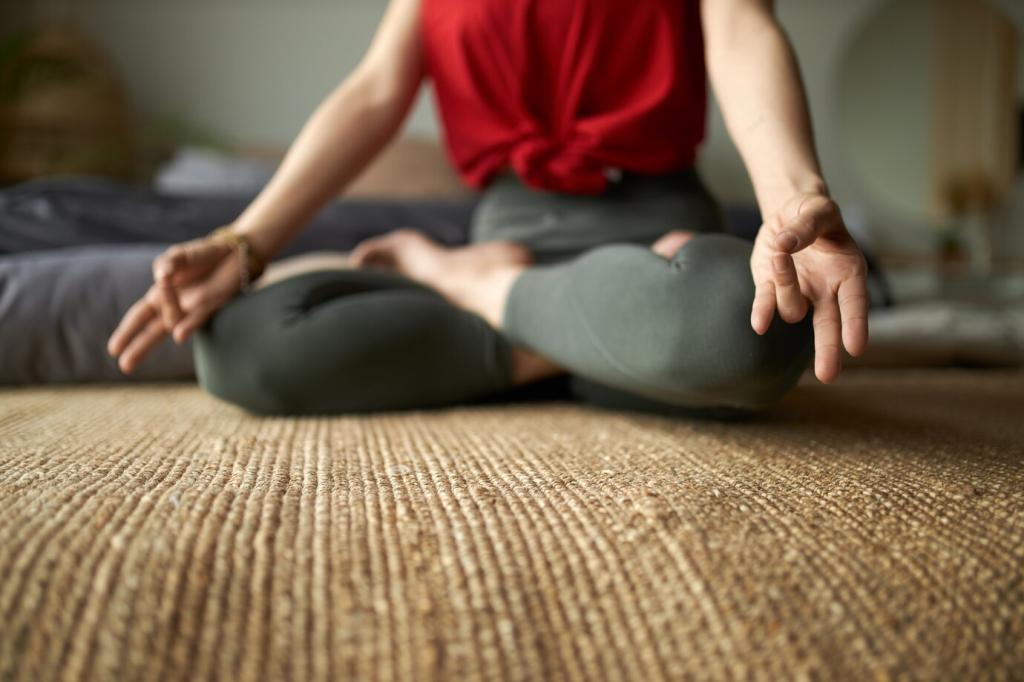Track Progress, Stay Motivated, and Connect
Note your meditation minutes, bedtime, wake time, and a simple stress rating. No perfection required. Look for patterns rather than judgments. Over time, you will see which practices soothe you most reliably and when small schedule shifts make the biggest difference.
Track Progress, Stay Motivated, and Connect
Track easier sleep onset, fewer awakenings, and kinder self-talk during tough days. Celebrate even tiny steps, like pausing before reacting or finishing one mindful breath. Recognition fuels motivation, turning meditation into a supportive habit that steadily reduces stress and welcomes deeper rest.





